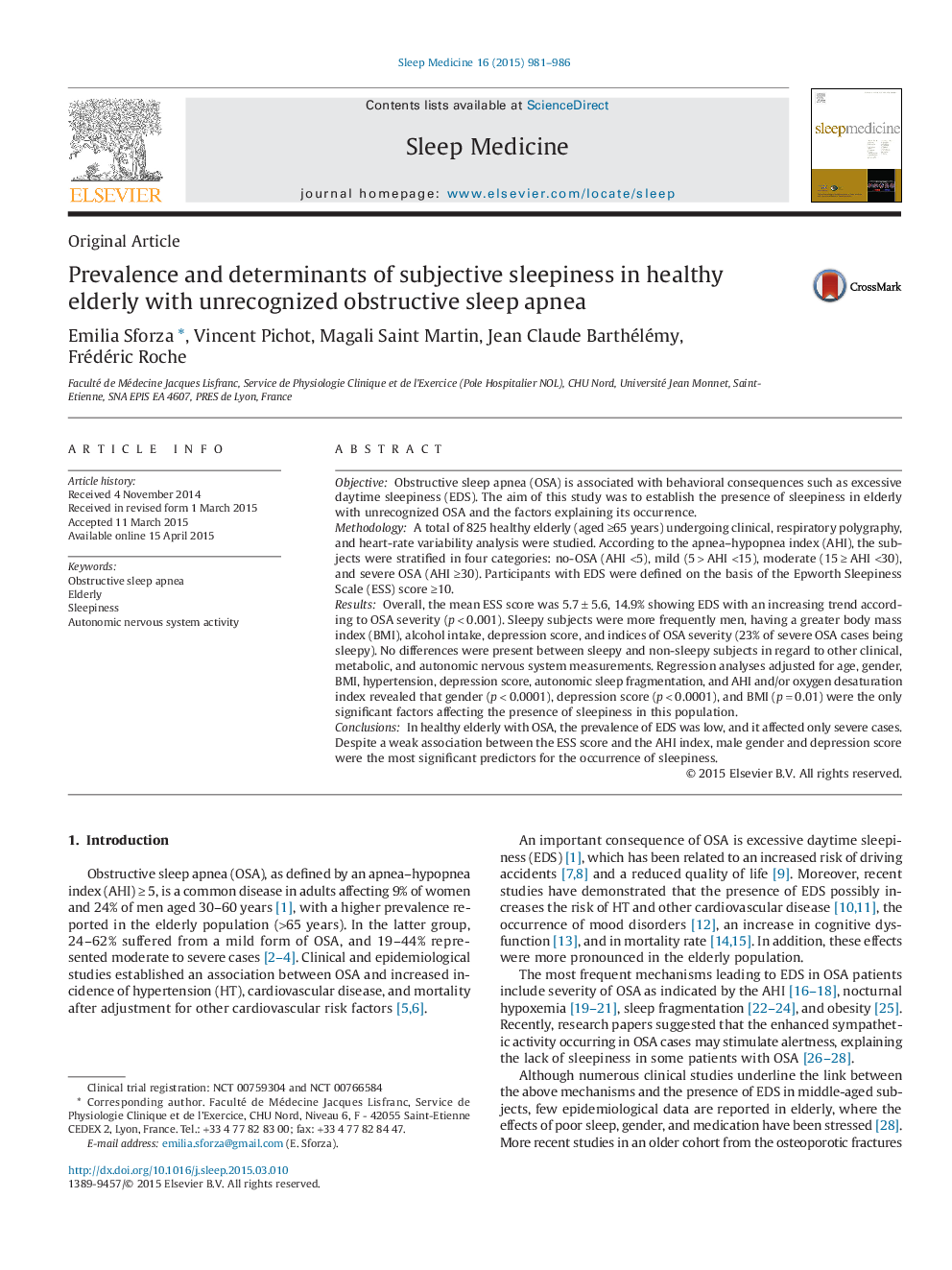| Article ID | Journal | Published Year | Pages | File Type |
|---|---|---|---|---|
| 3175863 | Sleep Medicine | 2015 | 6 Pages |
•No extensive data on subjective sleepiness (EDS) in elderly with OSA are present in the literature•We examined the prevalence and the factors of EDS in a large community-based elderly sample•In our sample, the prevalence of EDS was low, and the indices of OSA did not have an impact on sleepiness
ObjectiveObstructive sleep apnea (OSA) is associated with behavioral consequences such as excessive daytime sleepiness (EDS). The aim of this study was to establish the presence of sleepiness in elderly with unrecognized OSA and the factors explaining its occurrence.MethodologyA total of 825 healthy elderly (aged ≥65 years) undergoing clinical, respiratory polygraphy, and heart-rate variability analysis were studied. According to the apnea–hypopnea index (AHI), the subjects were stratified in four categories: no-OSA (AHI <5), mild (5 > AHI <15), moderate (15 ≥ AHI <30), and severe OSA (AHI ≥30). Participants with EDS were defined on the basis of the Epworth Sleepiness Scale (ESS) score ≥10.ResultsOverall, the mean ESS score was 5.7 ± 5.6, 14.9% showing EDS with an increasing trend according to OSA severity (p < 0.001). Sleepy subjects were more frequently men, having a greater body mass index (BMI), alcohol intake, depression score, and indices of OSA severity (23% of severe OSA cases being sleepy). No differences were present between sleepy and non-sleepy subjects in regard to other clinical, metabolic, and autonomic nervous system measurements. Regression analyses adjusted for age, gender, BMI, hypertension, depression score, autonomic sleep fragmentation, and AHI and/or oxygen desaturation index revealed that gender (p < 0.0001), depression score (p < 0.0001), and BMI (p = 0.01) were the only significant factors affecting the presence of sleepiness in this population.ConclusionsIn healthy elderly with OSA, the prevalence of EDS was low, and it affected only severe cases. Despite a weak association between the ESS score and the AHI index, male gender and depression score were the most significant predictors for the occurrence of sleepiness.
